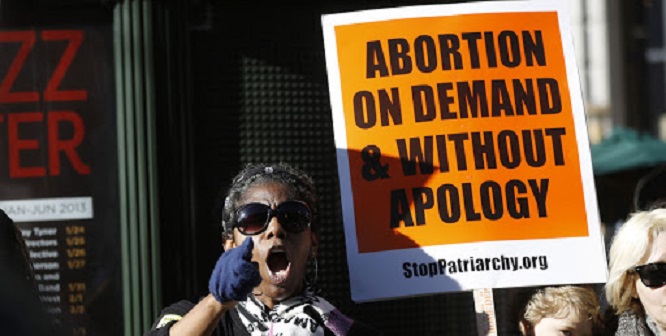New York is about to become the second state to force colleges to provide dangerous abortion drugs to students on campus.
California became the first earlier this year, and, last week, the New York Assembly passed a similar bill, sending it to Gov. Kathy Hochul, a pro-abortion Democrat, for her signature. The vote was 100-49.
State Assembly Bill 1395C requires State University of New York (SUNY) and City University of New York (CUNY) campuses to provide abortion drugs to students. The schools must employ or contract with individuals authorized to prescribe abortion drugs on campus or provide abortion referrals to students off campus.
New York State Catholic Conference slammed the bill as “dangerous and misguided,” saying it puts young women’s and unborn babies’ lives at risk.
“As with so many bills that expand abortion, the sponsors claim to support women. The lack of safeguards or true consideration for women’s health within this provision would do the opposite,” the conference said in March.
The pro-life Catholic group urged lawmakers to reject the bill, questioning what would happen if young women suffer life-threatening complications in their dorm rooms.
Please follow LifeNews on Rumble for the latest pro-life videos.
“The bill’s cavalier approach in providing the pill to college students does nothing to address many potential problems,” the conference said. “What about girls who go on to have severe complications alone in their dorm room? What about girls who are on their own for the first time, and pressured by an abusive partner? What about girls who are misdiagnosed or unsure about the timing of their pregnancy? What about girls with ectopic pregnancies, for which the pill could prove fatal?”
Live Action News reports the pro-abortion group Advocates for Youth was major supporter of the bill.
After the vote last week, Niharika Rao, New York campus co-coordinator for abortion access with Advocates for Youth, said: “Students worked incredibly hard for this victory for over three years. I’m proud that New York is moving closer to reproductive justice and to abortion access for all.”
The bill is scheduled to go into effect Aug. 1, but some New York universities already have announced plans to provide abortion drugs to students voluntarily.
The College Fix reports New York University in Manhattan said its student health plan will cover elective abortions for free starting in the fall, and its student health center “is currently seeking the necessary certification process in order to stock and dispense” the abortion pill on campus.
Barnard College in Manhattan also plans to begin providing abortion pills on campus in the fall, according to the report.
Meanwhile, Students for Life has been working to educate students about the dangers of abortion drugs as well as the free pregnancy and parenting support available through pregnancy resource centers and other pro-life charities.
The abortion pill mifepristone works by blocking the hormone progesterone and basically starving the unborn baby to death. Typically, abortionists also prescribe a second drug, misoprostol, to induce labor and expel the baby’s body. The FDA approves the drug up to 10 weeks of pregnancy but some abortionists prescribe it later.
The FDA has linked mifepristone to at least 28 women’s deaths and 4,000 serious complications. However, under President Barack Obama, the FDA stopped requiring that non-fatal complications from mifepristone be reported. So the numbers are much higher.
Right now, federal courts are considering a lawsuit from medical doctors that challenges the FDA approval of mifepristone as an elective abortion drug. They accuse the agency of ignoring evidence of safety problems and failing to properly study the risks.
Studies indicate the risks are more common than what abortion activists often claim. A recent study by the Charlotte Lozier Institute found that the rate of abortion-related emergency room visits by women taking the abortion drug increased more than 500 percent between 2002 and 2015.
Another new study from the University of Toronto, “Short-Term Adverse Outcomes After Mifepristone–Misoprostol Versus Procedural Induced Abortion,” published in the Annals of Internal Medicine, found that one in ten women who took the abortion pill had to go to the emergency room, according to Pregnancy Help News.
Often, women suffer emotional and psychological trauma, too. Recently, OB-GYNs have reported hearing from more distraught women who realized too late after taking the abortion pills that their aborted baby was not just a “clump of cells.”
Many also have expressed concerns about a rise in forced and coerced abortions.








